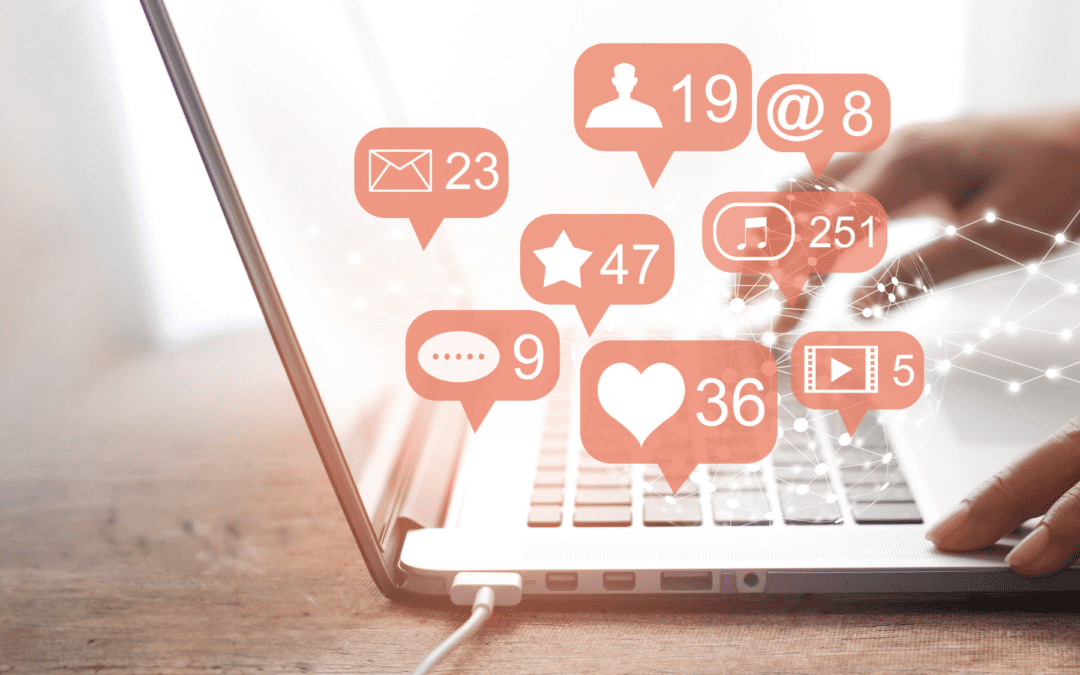Author: Stan Clark
As physical distancing measures are continuously implemented, social media has become a crutch for many people.
However, social media may also serve as a double-edged sword, especially for people with bipolar disorder(1).
The Good: Making Meaningful Connections
Social media platforms can provide meaningful support and a wealth of useful information for people with bipolar disorder.
It allows individuals with bipolar disorder to stay connected with their friends, family, and doctors. Social media can also help those with the mental condition find other people with bipolar disorder or other mental health issues.
Connecting with similar people may help in forming a support system and reducing self-stigma regarding mental illnesses.
Changes in the content of social media posts during manic and depressive episodes may help friends and family of people with the disorder know when to reach out and help.
Similarly, changes in social media use patterns may help people with bipolar disorder keep track of their mood swings(2). Noticing mood shifts may help in recognizing the start of a manic or depressive episode.
Using social media for everyday necessities, such as food deliveries, can also help individuals with the condition. This function is handy for those who find it hard to interact with others due to a depressive slump.
The Bad: Exacerbating Manic and Depressive Episodes
Unfortunately, social media use may aggravate mood swings and episodes linked to bipolar disorder.
Checking social media before going to bed may worsen sleep issues. A study showed that sleep deprivation may trigger manic episodes, especially among women(3).
High impulsivity during manic episodes and social media use may lead to online shopping sprees or gambling.
Hypersexuality, another symptom of bipolar mania, combined with impulsivity, may lead to unwise exhibitionism online. Examples of exhibitionism include sending sexual messages, videos, or photos.
Meanwhile, excessive social media use during depressive episodes may increase isolation, depression, social distress, and anxiety.
The Balance: Taking a Much-Needed Break
Removing social media from your life is not only an extreme approach but also impractical, especially with the current pandemic.
Instead, taking a break from online platforms may help lessen social media-induced stress. Researchers noted that less time on social media helps decrease loneliness and depression(4).
It is helpful to have a purpose when logging onto social media. Mindlessly going through your newsfeed may increase feelings of jealousy and the fear of missing out.
Use social media in ways that give you positive feelings, such as speaking to long-distance relatives or friends.
Other tips for improving your mental health when using social media include:
- Disabling social media notifications to lessen distractions
- Using apps to track how much time you spend online
- Installing apps to limit time on your phone
- Leaving your phone when using the bathroom
- Placing your device far from the bed before sleeping
Lessening app use may help curb impulsivity or depressive thoughts during bipolar episodes.
Perhaps the best advice for using social media applies to life overall: everything in moderation.
If you feel that excessive social media use impacts your mental health, visit your therapist for professional help.
References
- Matthews, M., Murnane, E., Snyder, J., Guha, S., Chang, P., Doherty, G., & Gay, G. (October 2017). The double-edged sword: A mixed methods study of the interplay between bipolar disorder and technology use. Computers in human behavior, 75, 288-300. https://doi.org/10.1016/j.chb.2017.05.009
- Ibid.
- Lewis, K. S., Gordon-Smith, K., Forty, L., Di Florio, A., Craddock, N., Jones, L., & Jones, I. (2017). Sleep loss as a trigger of mood episodes in bipolar disorder: individual differences based on diagnostic subtype and gender. The British journal of psychiatry : the journal of mental science, 211(3), 169–174. https://doi.org/10.1192/bjp.bp.117.202259
- Hung, M. G., Marx, R., Lipson, C., & Young, J. (2018, Nov. 10). No More FOMO: Limiting Social Media Decreases Loneliness and Depression. Journal of social and clinical psychology, 37(10), 751-768. https://guilfordjournals.com/doi/pdf/10.1521/jscp.2018.37.10.751
The content of the International Bipolar Foundation blogs is for informational purposes only. The content is not intended to be a substitute for professional medical advice, diagnosis, or treatment. Always seek the advice of your physician and never disregard professional medical advice because of something you have read in any IBPF content.


